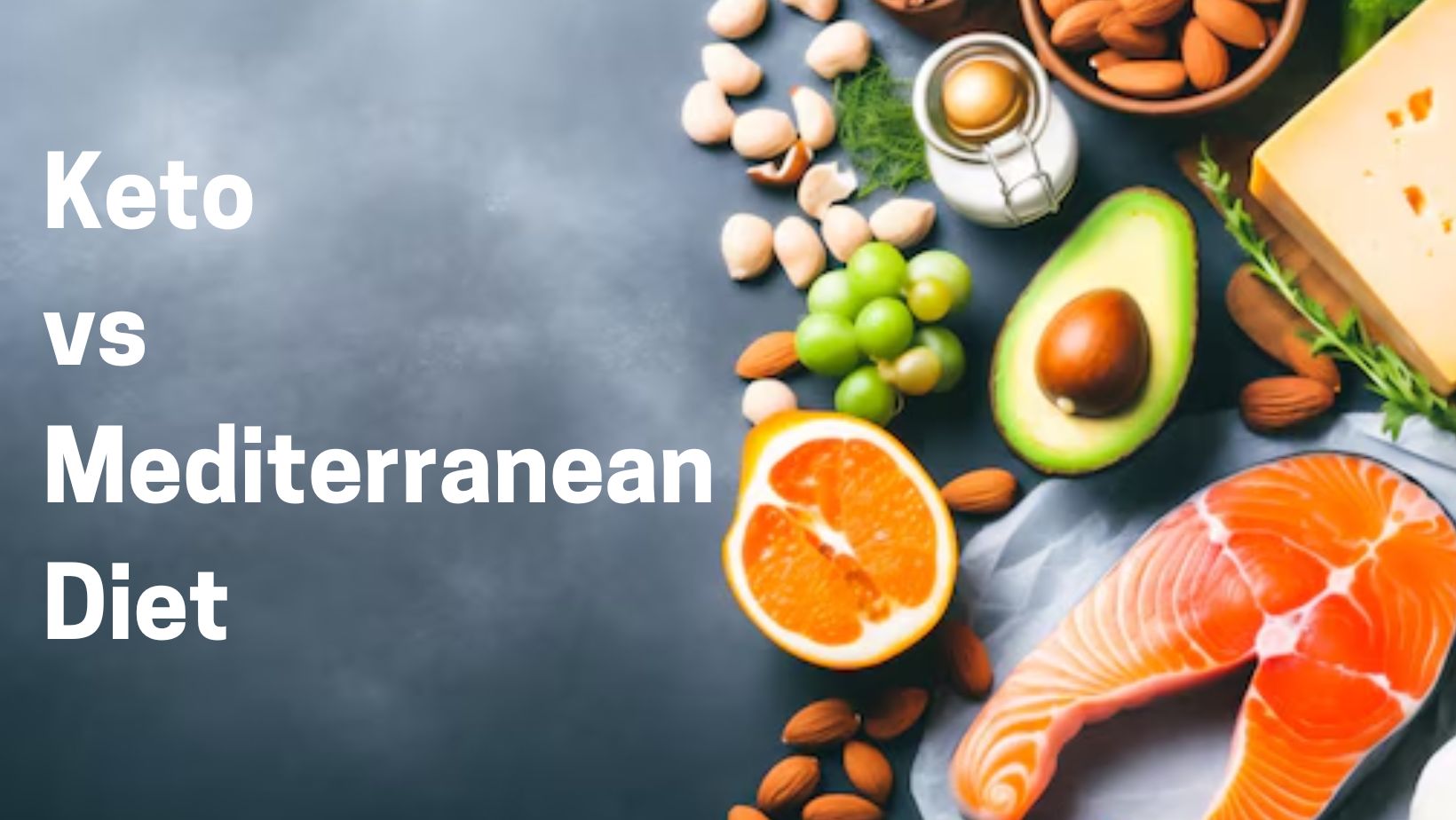
In the quest for effective weight loss, two popular diets often come into the spotlight: the ketogenic (keto) diet and the Mediterranean diet. Both have their unique approaches to nutrition and have garnered significant attention for their health benefits. But which one is better for weight loss? In this comprehensive comparison, we’ll delve into the principles, benefits, and potential drawbacks of each diet to help you increase your knowledge base.
The ketogenic diet is a high-fat, low-carbohydrate eating plan that has been around since the 1920s, initially used to treat epilepsy. In recent years, it has gained popularity as a weight loss strategy. The primary goal of the keto diet is to induce a state of ketosis, where the body burns fat for fuel instead of carbohydrates.
Approximately 70-75% of your daily caloric intake comes from fats. This includes healthy fats like avocados, nuts, seeds, and oils.
Carbs are restricted to about 5-10% of your daily intake, typically around 20-50 grams per day. This means avoiding bread, pasta, rice, and sugary foods.
Protein makes up about 20-25% of your daily intake. Lean meats, fish, eggs, and dairy are common protein sources.
Many people experience significant weight loss in the initial stages of the keto diet due to the body’s shift from burning glucose to burning fat.
The high-fat content and protein intake helps keep you fuller for longer, reducing overall calorie consumption.
The keto diet can help stabilize blood sugar levels, which is beneficial for people with type 2 diabetes or insulin resistance.
Restricting carbohydrates can lead to a lack of essential nutrients like fiber, vitamins, and minerals found in fruits, vegetables, and whole grains.
Some individuals experience flu-like symptoms, including headaches, fatigue, and irritability, during the initial phase of the diet as the body adapts to ketosis.
The strict carb limits can be challenging to maintain long-term, leading to potential relapse or yo-yo dieting.
The Mediterranean diet is based on the traditional eating patterns of countries bordering the Mediterranean Sea, such as Greece, Italy, and Spain. It emphasizes whole, minimally processed foods, healthy fats, and a balanced approach to eating.
1. Plant-Based Foods: Fruits, vegetables, whole grains, legumes, and nuts are staples of the diet.
2. Healthy Fats: Olive oil is the primary source of fat, along with nuts and fatty fish like salmon.
3. Moderate Protein: Protein comes from lean sources like fish, poultry, beans, and dairy, with limited red meat consumption.
4. Limited Processed Foods and Sugars: The diet avoids processed foods, refined sugars, and unhealthy fats.
The emphasis on whole foods and balanced nutrition can lead to gradual, sustainable weight loss.
The diet is rich in omega-3 fatty acids, antioxidants, and fiber, which contribute to improved cardiovascular health.
Studies have shown that the Mediterranean diet lowers the risk of chronic diseases such as heart disease, stroke, and certain cancers.
Compared to the rapid results of the keto diet, weight loss on the Mediterranean diet may be slower and more gradual.
While the diet promotes healthy eating, portion control is still important, as overeating healthy foods can still lead to weight gain.
When it comes to choosing between the keto and Mediterranean diets for weight loss, several factors come into play:
The keto diet often results in rapid weight loss, especially in the first few weeks. This is primarily due to the significant reduction in carbohydrate intake, leading to water loss and fat burning. The Mediterranean diet, on the other hand, promotes a slower, more gradual weight loss, which can be easier to maintain over the long term.
Sustainability is crucial for long-term success in weight loss. The Mediterranean diet is generally considered more sustainable due to its flexibility and variety of foods. It encourages a balanced approach to eating without severe restrictions, making it easier to adhere to over time. The keto diet’s strict carb limits can be challenging for some people to maintain, leading to potential relapses.
The Mediterranean diet provides a more balanced nutritional profile, rich in essential vitamins, minerals, and fiber from fruits, vegetables, and whole grains. The keto diet, while effective for weight loss, can result in nutrient deficiencies if not carefully planned. It’s important to incorporate a variety of nutrient-dense foods and consider supplements if necessary on the keto diet.
Both diets offer unique health benefits. The keto diet is effective for improving insulin sensitivity and managing blood sugar levels, making it beneficial for individuals with type 2 diabetes or insulin resistance. The Mediterranean diet is renowned for its heart-healthy properties, reducing the risk of cardiovascular diseases and promoting overall longevity.
Personal preferences and lifestyle play a significant role in choosing the right diet. The keto diet requires strict adherence to low-carb, high-fat foods, which may not be suitable for everyone. The Mediterranean diet allows for more flexibility and variety, making it easier to incorporate into different lifestyles and cultural preferences.
Ultimately, the decision between the keto and Mediterranean diets for weight loss depends on individual goals, preferences, and health considerations. Here are some key takeaways:
Weight loss is a common goal for many, but it is essential to approach it with a sustainable and healthy mindset. Fad diets, while often promising quick results, can sometimes be misleading and even harmful. Here are some effective weight loss strategies by the best dietician in Gujarat
In the end, It’s important to consult with a healthcare professional or a nutritionist before starting any new diet to ensure it aligns with your individual health needs and goals. Remember, the best diet is one that you can maintain long-term and supports your overall well-being.
I’d love to learn more about you and how we can work together to get our healthy meals on the table.